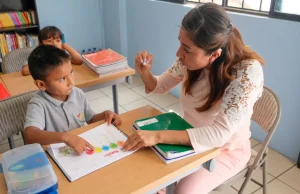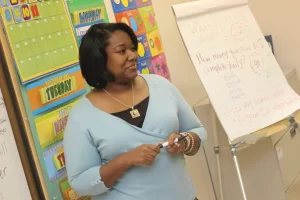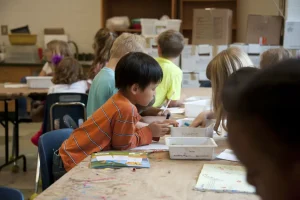The Welsh Government Legislation Keeping Learners Safe, lays out the safeguarding and child protection laws that must be followed by all schools, colleges, governing bodies and local authorities in Wales. This blog breaks down sections 1 and 2 of the legislation.
This blog is part 1 of a 3-part series about the Guidance Keeping Learners Safe. Read Part 2 HERE and Part 3 HERE.
Safeguarding in Wales
The Welsh Government wants to ensure that all children are given the opportunity to learn, be active, and lead healthy and happy lives. In order to do this they have robust safeguarding laws and systems in place to keep children and young people safe from harm. Safeguarding refers to keeping children safe from harm, abuse and neglect. You can find out more in our Safeguarding Blog.
Organisations in Wales such as local authorities, schools and colleges have a legal obligation to safeguard the students in their care and promote their wellbeing. Education settings and those who work within them are well-placed to support children and spot signs of abuse, neglect and possible harm.
The guidance sets out things that schools and colleges:
- Must do because it’s the law; and,
- Should do because it’s part of this guidance.
Keeping Learners Safe Guidance
The summary of the guidance divides into eight sections:
- About Safeguarding in Wales
- Safeguarding Roles and Responsibilities
- Responding to Concerns
- Safeguarding in specific circumstances
- Domestic abuse, gender-based violence, sexual violence and harmful cultural practices
- Keeping Children Safe Online
- Community Cohesion
- Safer Staff Recruitment Practice
This blog will focus on sections 1 and 2 of the guidance.

About Safeguarding in Wales
This section of the guidance covers the responsibilities all schools and college have to:
- Reduce risks
- Take action to keep children safe
- Follow the law
- Follow all national and local policies, guidance and procedures
- Have their own safeguarding policies and procedures
- Know about safeguarding needs in their area
All schools and colleges in Wales are inspected by Estyn, and sometimes the Care Inspectorate Wales (CIW). Inspectors examine how the establishment is keeping people safe and check their safeguarding policy.
Safeguarding Roles and Responsibilities
The guidance has different responsibilities for each institution, for the purposes of this blog we will focus on schools and colleges.
Governing Bodies
It is the responsibility of Governing bodies to:
- Make sure the school or college has safeguarding protection policies and procedures
- Carry out DBS checks for new staff and volunteers
- Make sure all staff members are up-to-date on their safeguarding training
- Make sure all temporary staff are aware of the organisations safeguarding policies
- Make sure the DSP, the designated governor and the chair of governors work with the Safeguarding Children’s Board and other services.
Establishments such as schools and colleges should have a designated governor for safeguarding who takes responsibility for child protection. It is vital all members of governing bodies have safeguarding and child protection training in their first term and complete the Keeping Learners Safe modules.

Headteachers, Principals and Leaders
Headteachers, principals and leaders must make sure all teachers, staff and volunteers:
- Follow the organistaions safeguarding protection policies and procedures
- Have resources to keep children safe
- Have safeguarding training
- Know how to raise concerns about a child in the right ways
- Know who the DSP is and how to contact them
It is vital these leaders:
- Promote open communication between staff and learners
- Have more than one DSP if their school size needs it
- Make sure the DSP has all the resources and support they need
- Give the DSP time to take part in safeguarding meetings and help other services assess a child’s needs
Designated Safeguarding Person (DSP)
It is vital that everyone understand the role of the DSP is to keep children safe, give advice to and support staff with any safeguarding questions they may have; however, it is NOT their job to investigate allegations or claims of abuse.
The DSP must:
- Be a senior member of staff, able to make decisions or take action
- Have up to date safeguarding training
- Are available to discuss any concerns
- Know how to recognise the signs of abuse, neglect and harm, including online abuse
- Know how to report concerns to the local authority or to the police
- Keep the head teacher up to date with all child protection concerns
The DSP should:
- Communicate with learners and staff
- Stay up to date with ongoing cases or concerns
- Have at least one deputy to help them
- Work with other services so they know about risks in their area
- Check policy and practice at the school or college at least once a year
- Make sure staff, learners and their families have all the information they need, in ways they can understand

All Teachers, Staff and Volunteers
All teachers, staff and volunteers working in an education setting should:
- Understand the organisations safeguarding policy
- Receive an induction and refresher training which covers safeguarding
- Understand the causes of abuse, neglect and other kinds of harm
- Be able to recognise the signs of abuse, neglect and other kinds of harm
- Know what to do if they have concerns
All staff are required to have refresher safeguarding training every two years, it is the duty of the DSP to keep a record of all staff safeguarding training.
Initial Teacher Education Partnerships
Often schools and colleges partner with universities and have student teachers. There are a series of steps to ensure these students’ teachers are safe to work with children and young people including:
- Make sure student teachers have support for their well-being
- Develop good working practices around safeguarding
- Know about all the laws and guidance around safeguarding.

Owners of Independent Schools
Owners of independent schools who are not headteachers must:
- Communicate regularly with the head teacher
- Keep up to date with all the safeguarding issues.
Schools that provide learners’ accommodation must register with the Care Inspectorate Wales (CIW). These schools are inspected by CIW and Estyn.
Work-Based Learning Providers
These providers must ensure all children and young people are safe. They should:
- Check all staff are safe to work with children including doing DSB checks
- Give guidance on safeguarding
- Have a designated safeguarding lead officer
- Ensure all staff are trained on safeguarding and support when they need
Contractors
Any contractor working at the school or college must have had a DBS check.
They can use the:
The full summary of Keeping Learners Safe is available here.
Read Part 2 of the blog series HERE and read Part 3 of the blog series HERE.
How Can Training in Safeguarding Help you in your Role
If you work with children and young people, you are responsible for keeping those in your care safe from harm. Our safeguarding course on our Equal Academy covers types of abuse, reporting a concern, and how best to deal with disclosures from learners.
This course has been developed by two of Equal’s team members. One who was an ex primary school headteachers with many years experience as a Designed Safeguarding Person, and the other who is Equal’s Designed Safeguarding Person and is a practicing secondary school teacher in Wales.
Our safeguarding course is completely free of charge for all Equal staff members!




